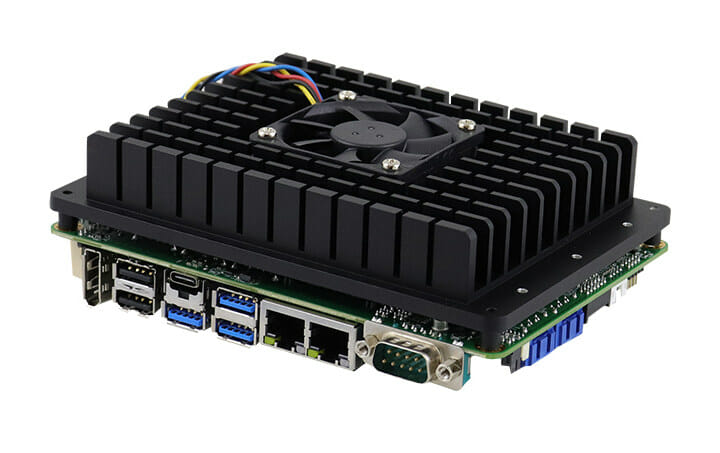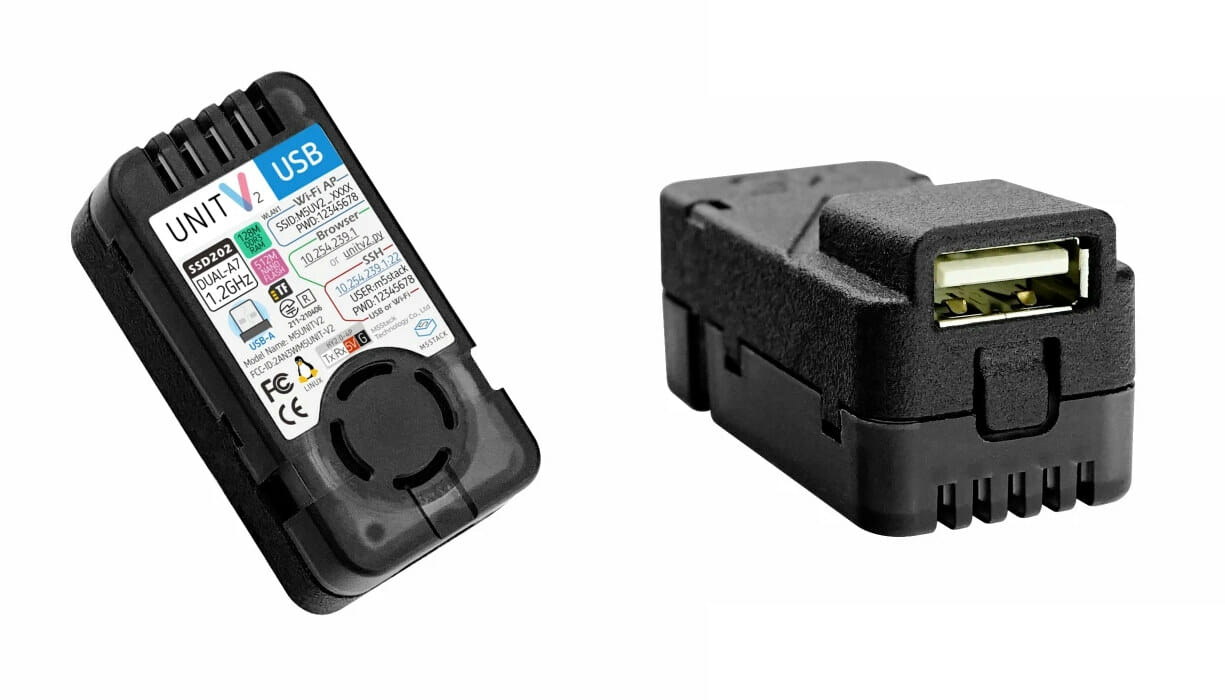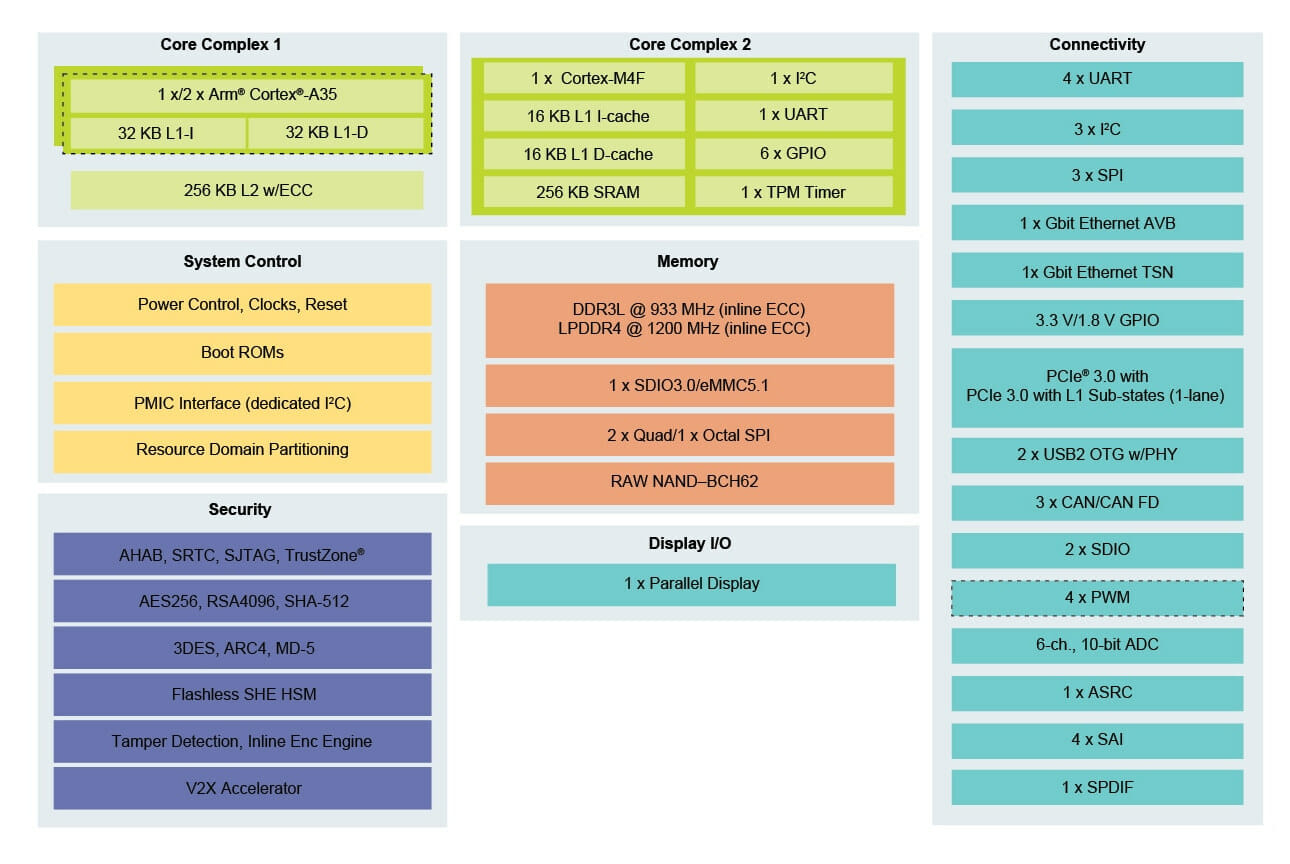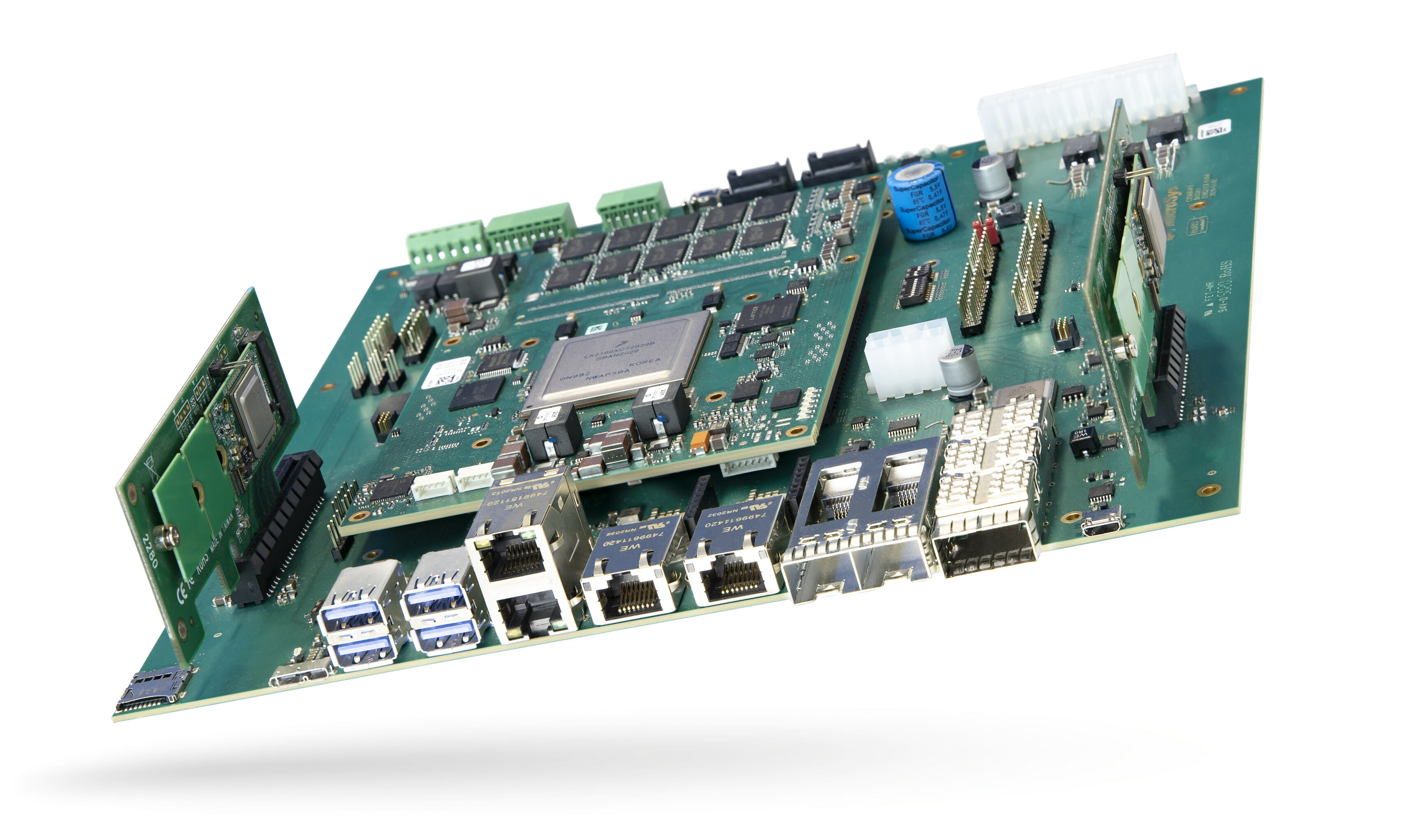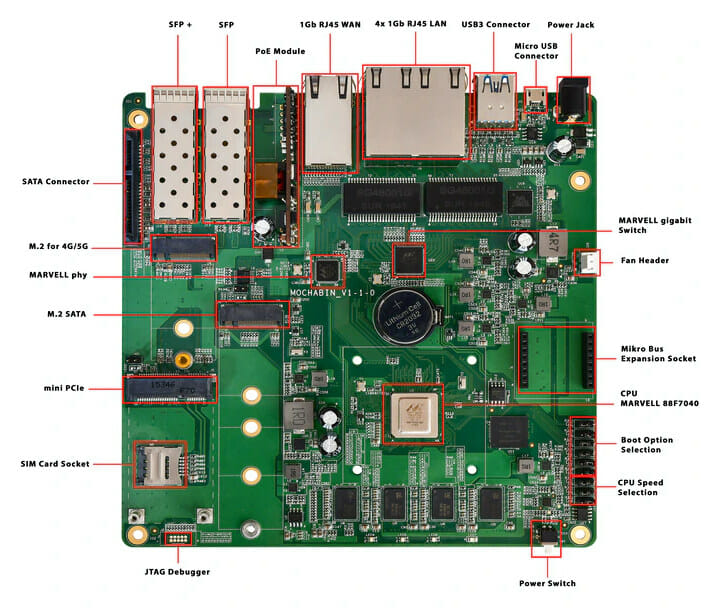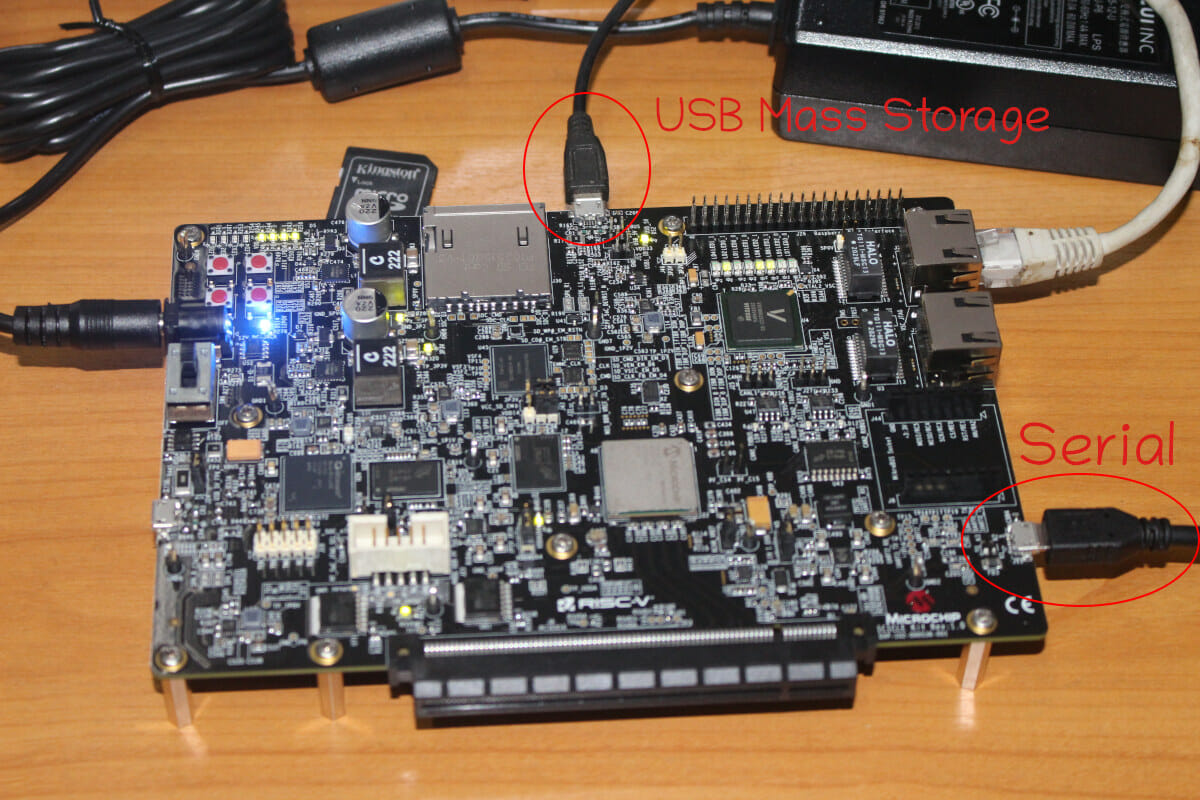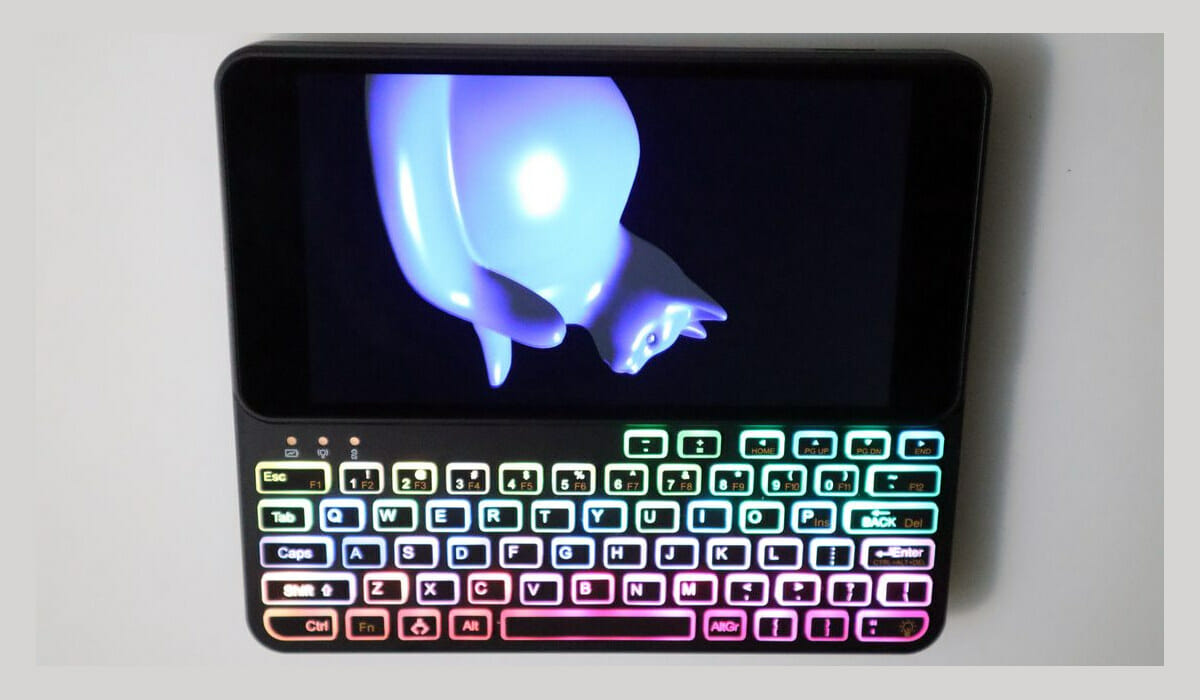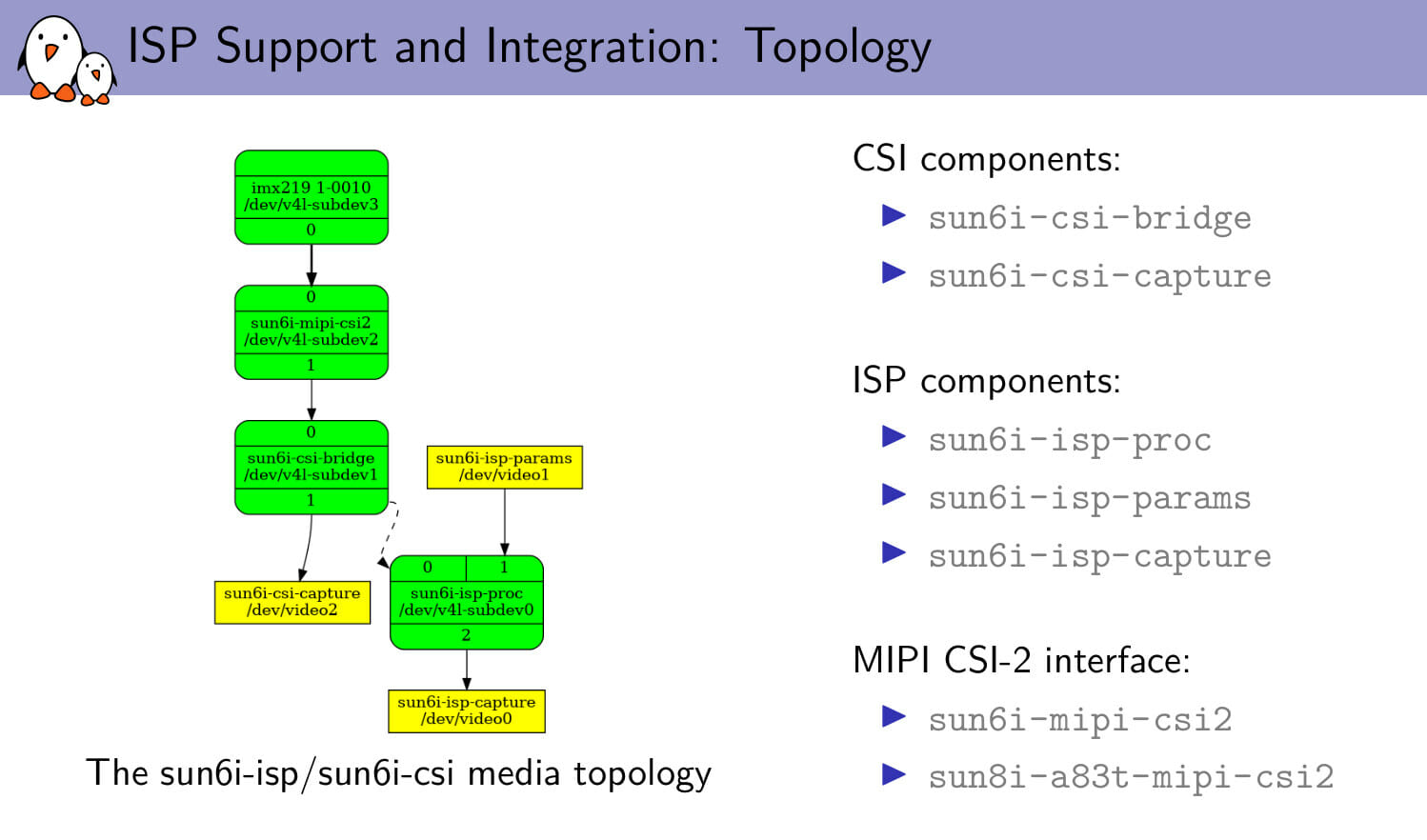We’ve covered plenty of AMD Ryzen Embedded V2000 SBCs in the past, but it appears IBASE IB952 might be the first 3.5-inch SBC with a Ryzen V2000 processor for the industrial and IoT markets. The board supports up to 64GB RAM, offers two SATA III ports for storage, dual Gigabit Ethernet networking, four display outputs with DisplayPort, eDP and LVDS interfaces, USB and serial ports, as well as expansion through two M.2 sockets. IBASE IB952 specifications: SoC – AMD Ryzen Embedded V2000 with Radeon Vega graphics System Memory – DDR4-2400 SO-DIMM, up to 64GB with ECC support Storage 2x SATA III ports M.2 M-Key socket for NVMe SSD Flash for AMI BIOS Video Output 1x DisplayPort 1.4 port up to 4Kp60 1x DisplayPort 1.2 port via USB-C port up to 4Kp60 1x 24-bit dual-channel LVDS up to 1080p60 1x eDP (embedded DisplayPort) up to 4Kp60 Four independent display support Audio […]
M5Stack UnitV2 AI module gets USB camera and M12 camera versions
M5Stack UnitV2 is an ultra-compact Linux AI camera powered on Sigmastar SSD202D SoC with a dual-core Cortex-A7 processor @ 1.2 GHz, and 128MB on-chip DDR3 that was launched in April 2021 with a Full HD camera featuring a 68° field-of-view. M5Stack has now introduced two new models, one called M5Stack UnitV2 USB without any camera at all, instead relying on an external USB UVC camera, and the other named M5Stack UnitV2 M12 equipped with an M12 socket and shipping with both a normal focal length camera with an 85° FoV and wide-angle focal length with a 150° FoV. M5Stack UnitV2 USB M5Stack Unitv2 USB specifications: SoC – SigmaStar SSD202D dual-core Cortex-A7 processor @ 1.2 GHz with 128MB on-chip DDR3 Storage – 512MB on-chip NAND flash with around 100MB free space, MicroSD card socket Camera – N/A Audio – Built-in microphone Connectivity – 2.4GHz WIFi 4 up to 150 Mbps (RTL8188FTV), […]
GPU-less NXP i.MX 8XLite Cortex-A35/M4 SoC is aimed at IIoT & V2X applications
NXP i.MX 8XLite SoC is a cost-optimized version of NXP i.MX 8X automotive processor with up to two Cortex-A35 cores, one Cortex-M4F real-time core, and in a GPU-less configuration since it lacks the Vivante GPU found in i.MX 8X family. The headless processor also comes with dedicated Hardware Security Modules (HSM) to enable telematics solutions, vehicle-to-everything (V2X) applications including vehicle-to-vehicle (V2V) and vehicle-to-infrastructure (V2I) solutions, road infrastructure connectivity, as well as IIoT applications such as industrial equipment and building automation. NXP i.MX 8XLite key features and specifications: Processor complex 1x or 2x Arm Cortex-A35 cores @ up to 1.2 GHz with 256KB L2 cache with ECC 1x Arm Cortex-M4F core for real-time processing Memory I/F – 16-bit DDR3L-1866 and LPDDR4-2400 with ECC protection Storage I/F 1x FlexSPI for fast boot from SPI NOR flash 2x SD 3.0 card interfaces 1x eMMC5.1/SD3.0 NAND (62-bit ECC support) Networking – 1x Gigabit Ethernet […]
miriac AIP-LX2160A 16-core embedded platform delivers up to 130 TOPS with 5 Hailo-8 modules
MicroSys Electronics miriac AIP-LX2160A embedded platform combines a 16-core Cortex-A72 NXP LX2160A networking processor with up to five Hailo-8 AI accelerator modules delivering up to 130 TOPS of AI inference performance. The board supports up to 128 GB RAM, up to 4x SATA hard drives, up to 100GbE connectivity, and appears to be especially suited to applications with multiple IP video streams requiring real-time video analytics. miriac AIP-LX2160A specifications: SoC – NXP Layerscape LX2160A with 16 Arm Cortex-A72 cores @ up to 2.2 GHz AI accelerators – 2x Hailo-8 M.2 AI Acceleration Modules, upgradeable to up to 5 Modules via NGFF M.2 Key M card System Memory – Up to 128 GB DDR4 RAM & optional ECC, up to 3200MT/sec, up to 4 ranks (combined design: 2x discrete & 2x SODIMM) Storage 4x SATA III ports Up to 256 GB eMMC 5.1 flash, additional eMMC device on carrier board Up […]
MochaBin-5G SBC offers 10GbE, WiFi 6, 5G for $159 and up (Crowdfunding)
Globalscale Technologies has a follow-up to their low-cost ESPRESSOBin SBC based on Marvell Armada 3700LP SoC. The MochaBin-5G SBC is powered by a Marvell Armada 7040 quad-core Cortex-A72 processor, and offers 10GbE networking for as little as $159, with as well as optional WiFi 6 and 5G connectivity. The single board computer is equipped with 16GB eMMC flash, up to 8GB DDR4, and plenty of high-speed interface with multiple Ethernet ports, USB 3.0 ports, M.2 socket for SATA and Cellular, and a mini PCIe for Wi-Fi and Bluetooth connectivity. MochaBin-5G specifications: SoC – Marvell Armada 7040 quad-core Corex-A72 processor @ up to 1.4GHz System Memory – 4GB or 8GB DDR4 (soldered down) Storage – 16GB eMMC flash, 4MB SPI NOR flash for bootloader, SATA connector, M.2 2280 socket for SATA III SSD Networking 1x 10GbE SFP+, 1x 1GbE SFP (via 88E1512 PHY) 4x Gigabit Ethernet RJ45 LAN ports via Topaz […]
Getting Started with the Yocto Linux BSP for Polarfire SoC FPGA Icicle Kit
Last month I received Microchip PolarFire SoC FPGA Icicle development kit that features PolarFire SoC FPGA with a Penta–core 64-bit RISC-V CPU subsystem and an FPGA with 254K LE, and booted it into the pre-installed Linux operating systems based on OpenEmbedded. Today, I’ll show how to get started with the Yocto BSP and run the EEMBC CoreMark benchmark, and I’ll check out the FPGA with Libero SoC Design Suite in a couple of weeks. Operating Systems supported by PolarFire SoC FPGA My initial idea was to focus this part of the review on Linux on RISC-V status, checking some system information, running some benchmarks (e.g. SBC-Bench), compiling the Linux kernel, and installing services like a LEMP stack (Linux, Nginx (pronounced Engine-X), MySQL, PHP) which could be used for WordPress hosting for instance. But then I looked at the operating systems supported with Microchip PolarFire SoC FPGA. There’s a Yocto Linux […]
Pocket P.C. devkits ship, U-blox GNSS module replaced by SIMCom SIM33ELA
The Pocket P.C. (aka Popcorn Computer) is a handheld Linux computer based on Allwinner A64 with 2GB RAM, 32GB storage, a 4.95-inch Full HD display, and a QWERTY keyboard that was introduced in 2019, and reminds me of PocketCHIP from a few years also with an Allwinner processor, a display, a keyboard, and a battery. The initial plan was to start shipping the device by May 2020, and there are been delays for reasons we’ll explain below, but the good news is that Source Parts has just announced the developer units had been shipped. So what happened exactly, besides the COVID-19 pandemic, government lockdowns, and supply chain disruptions? Source Parts first encountered issues with the quality of PCBs delivered by the manufacturer, which ended up with them having to switch to a new manufacturer. Getting the display to work was also a challenge, and Icenowy, a developer involved with linux-sunxi […]
Open-source Allwinner V3 ISP driver to enable blob-free camera support in mainline Linux
Bootlin has just submitted the first patchset for the Allwinner V3 image signal processor (ISP) driver in mainline Linux which should pave the way for a completely open-source, blob-free camera support in Linux using V4L2. There are several blocks in an SoC for camera support including a camera input interface such as MIPI CSI 2 and an ISP to process the raw data into a usable image. Add to this the need to implement the code for sensors, and there’s quite a lot of work to get it all working. Allwinner SDK comes with several binary blobs, aka closed-source binary, but Bootlin is working on making those obsolete, having first worked on Allwinner A31, V3s/V3/S3, and A83T MIPI CSI-2 support for the camera interface driver in the V4L2 framework (and Rockchip PX30, RK1808, RK3128 and RK3288 processors), as well as implemented support for Omnivision OV8865 and OV5648 image sensors earlier […]


